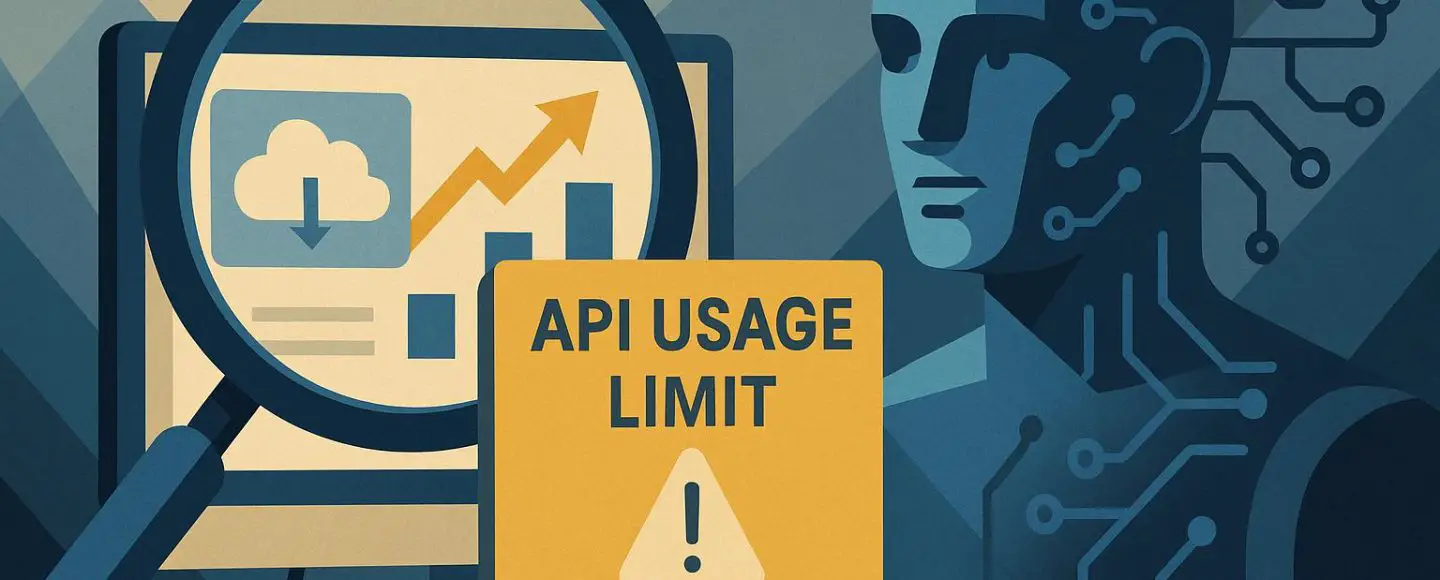Bing API Limited Spark AI Shift
Bing API limits a major turn in a limited spark AI shift artificial intelligence and search data mobility. Key Bing Search has disrupted many developers and third-party equipment by the decision of MicroS .ft to restrict API endpoints. This has accelerated a huge movement throughout the tech industry, where the platform is tightening the access to valuable datasets. For example, generating AI depends more on high quality information, this shift reflects strategic regeneration. The aim is to protect intellectual properties when creating new challenges for open development standards.
Key remedy
- Microsoft has quietly restricted access to ACCESS cesses of Bing Search API endpoints, creating unexpected disruptions for developers.
- This step fits in extensive trends, as platforms such as Reddit, Twitter/X and Google also limit the limit cess of valuable data.
- The criticism focuses on the lack of micros .Fft documents, transparency and support during the transition.
- This change reproduces the value of public web data in AI development and forces developers to reconsider the data sourcing strategy.
Also Read: Google tests AI operated search button
What changed with Bing API?
Microsoft has limited the limited cess of many Bing Search API endpoints without offering a clear public transition plan. This includes:
- Web search api (Previously provided real-time search results on a public web.)
- Image search api (Used to do the indexed image material and metadata for cess.)
- New Search API (Pulled structured news content from Bing Partners and Media Outlets.)
- Video Search API (Provides video links and previews from a sequential platform.)
Developer reports on platforms such as Gittub, Hacker News and Stack Overflow suggest that many final points begin to fail or return the incomplete data starting in the middle of 2023. Microsoft did not provide a structured communication or clear roadmap at that time, keeping developers stray to maintain service efficiency.
The Bing Index API is still active, but its scope is limited. It only supports specific cases such as SEO -related site submissions. It does not provide a general web search function, making it inappropriate for an application based on AI, Market Research or Extended Bing Search API in AI, market research or content consolidation.
Also Read: OpenAI’s O1 model exceeds its limit
Industry Shift: More than just Bing
Micros .ft’s strategy reflects the growing trend on the leading platform for data access. These changes are often presented as necessary to manage costs, prevent abuse, or control intellectual property. Here is a comparative breakdown:
| Platform | Limited type of data | The cause | Impact |
|---|---|---|---|
| Micros .ft (Bing) | Web, image, news, video search results | Prevent abuse in generating AI models | Service outage, equipment failure |
| Reddish | Comment and thread data by API | Data licensing and reasonable return | 3G-party app shutdown, user reaction |
| Twitter/x | Tweet history and metadata | Modification and Spam Control | Many free researcher tools closed |
| Search and Jnowledge Graph Data | Scrapping control and infrastructure load | Hard API quota and access cess limitations |
This pattern shows a major strategic shift. Data is no longer considered open structural. It is now seen as a very valuable asset. As large -language models grow in the Dells scale, companies are increasingly considered as inputs of ownership content and user -generated data for internal AI development.
Risk of developer reactions and platforms
On Gitthb and Hacker News, developers expressed frustration with the sudden changes of micros .ft:
“We created our service around Bing News Search API. Without warning, requests began to fail with the status of 403. No updates, no transit, just silent.”
– Comment from Gitthb Issue Thread, July 2023
“This could set a dangerous example. The API was supposed to be a contract. Now they are able to suddenly be able.”
– Developer on Hacker News, 2023 August Gust
Some AI projects experienced short -term disruptions as their scraping tools and data pipelines failed. These tools were based on the point of view of the web’s bing. Other services, such as news summary applications, browser extensions and content warnings, tolerates cascading issues.
Startups and academic groups, usually with limited budgets for enterprise licenses, faced a strong impact. Open data efforts and community -based indexing equipment have a new interest due to the situation.
Also Read: Increase iPhone experience: Set Chatgupt as Siri Backup
AI Data Economy: Protection of the fuel of innovation
The reason for this time is through the increasing demand of generating AI. These systems depend on large datasets with structured, high quality information. Many of these datasets came from public API or scrapers in the past.
By limiting the API Access Cess, companies are in aiming:
- Stop their content from the training of competitive AI systems
- Monetize data access cess through paid or tiered licensing models
- Comply with the rules of new laws and intellectual property
These companies create strong incentives for banning charges for public access cess and data services. For example, Micros .ft now offers many data tools under its Azure brand, which encourages developers to adopt their paid structural facilities for AI work.
What can developers and startups do now
If your system is used by Bing Search API, consider these steps for adapt:
1. Document your current API dependence
Create a detailed list of what final points your application uses, what scope they need, and what uses are on the volumes of usage. This will help you plan how to migrate to options.
2. Explore alternate API or open datasets
- OpenAI’s WebGPT Design (Connects with links to quoting structured searches.)
- Common (Monthly web snapshot is available to people.)
- Metaphorical system (Commercial LLM operated search option.)
- Serpapi and Dataforsio (Paid API that imitates Google or Bing queries.)
Support and contribute to the Open-Serce Indexing Initiative. Examples include general crawl and mojic. These projects aim to create more durable and independent search systems.
4. Make a morality and durability in mind
When switching data sources, make sure your approaches configure with license laws and user rights. Responsible AI requires respect of privacy, consent and Copyright Pyrite boundaries.
Expert point of view: Where does this lead?
Leaders of AI policy and morality have weighed on the widespread meaning of these changes:
“We are entering new negotiations at the value of digital public goods … AI needs fuel, but it is starting to say no to fuel suppliers, or at least asking to pay.”
– Mardith Whitker, President, Signal Foundation
“Platform L -K -in -in is a real downstream risk. If all AI innovation depends on the closed data held by a few companies, we lose the variety provided by the open access cess.”
– Arvind Narayanan, Computer Science Professor, Princeton
In reply, some open source AI communities are advocating government -supported data ABS Mans or Federated Indexing Platforms. These efforts can maintain equity and transparency in the AI-based future.
Spare
What is happening with Bing Search API?
Microsoft has banned the access cess of key data sources in Bing Search API (web, images, news, video). This limits external applications that once uses the end points.
Micros? Why does the FT API restrict the Access Cess?
These restrictions are intended to protect micros .Fft data from unauthorized AI training, creating new income through API licensing and improving security and compliance.
Context
Brianjolphson, Eric and Andrew Me A Kafi. Second Machine Yug: Work, progress and prosperity in times of brilliant techniques. WW Norton & Company, 2016.
Marcus, Gary and Ernest Davis. Reboot AI: Artificial intelligence building we can trust. Vintage, 2019.
Russell, Stewart. Human -related: The problem of artificial intelligence and control. Viking, 2019.
Web, Amy. Big Nine: How can tech titans and their thinking machines wrap humanity. Publicfare, 2019.
Cravier, Daniel. AI: an unrestricted history of the invention of artificial intelligence. Basic books, 1993.




